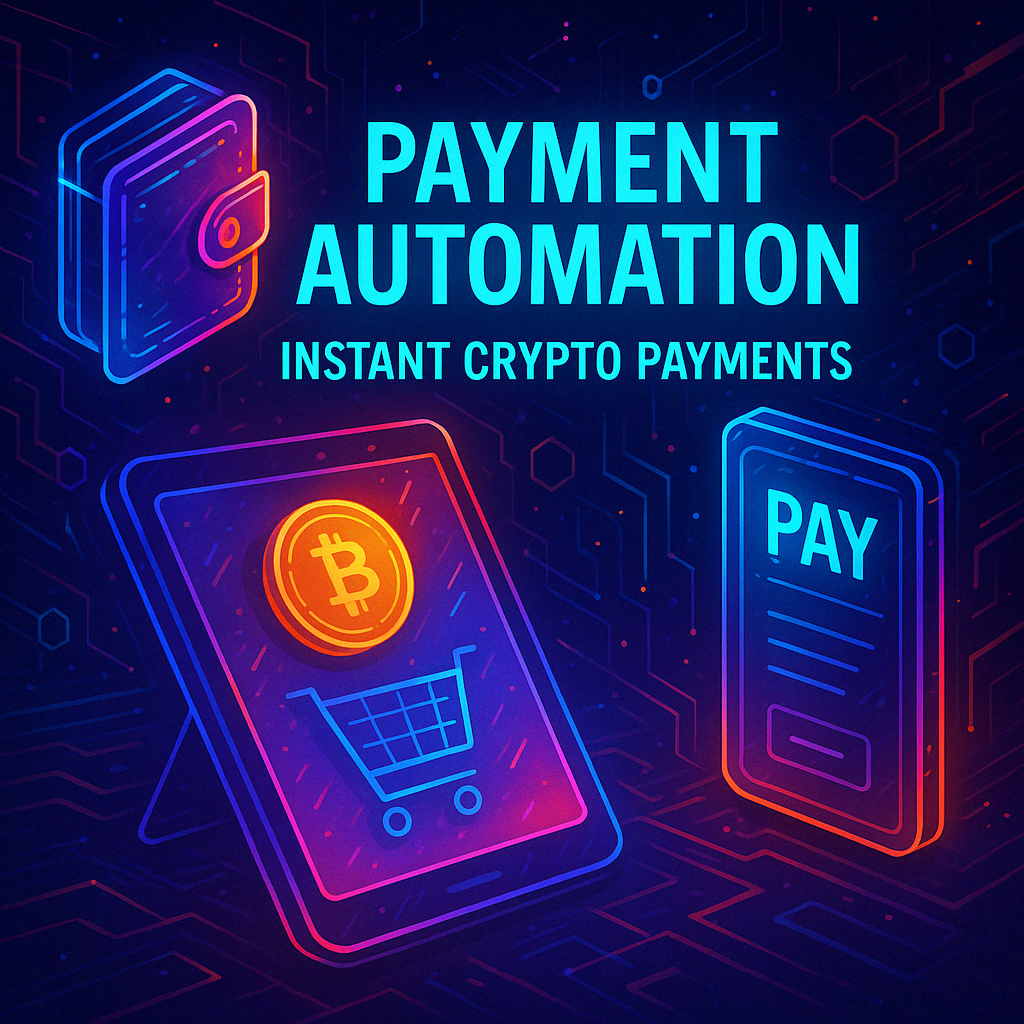Crypto-Powered Business Payment Solutions: Transforming Global Transactions with Speed and Security
April 20, 2025 | by 16squaresmaster@gmail.com

Introduction
As blockchain technology matures, it’s no longer just a disruptive force — it’s the foundation of a new financial era. Businesses around the globe are increasingly turning to crypto business tools and tokenized solutions to unlock faster, cheaper, and more secure ways of conducting commerce.
From scalable payment solutions providers to comprehensive crypto processing platforms, this transformation is empowering enterprises with borderless functionality, real-time settlements, and intelligent automation. This article explores how business payment solutions powered by cryptocurrency are revolutionizing the way organizations handle digital asset transactions, manage risk, and scale internationally.
1. The Evolution of Business Payment Solutions
Traditional business payment solutions have long relied on banks, credit card networks, and clearing houses — systems that often entail high fees, slow settlement, and geographical limitations.
Cryptocurrency and blockchain-based finance offer:
-
Faster settlement (often within seconds)
-
Lower transaction costs
-
Global access without third-party intermediaries
-
Immutable records for better accountability
Today’s crypto-enabled businesses need agile payment processing platforms that meet these expectations — especially those supporting global crypto payments.
2. The Role of a Payment Solutions Provider in Crypto
A payment solutions provider acts as a bridge between merchants and the financial infrastructure needed to process transactions. In the crypto economy, this includes:
-
Wallet management
-
Token support
-
Fiat conversion and withdrawal options
-
Tax and reporting tools
-
Built-in compliance and payment security
Top providers like NOWPayments, BitPay, and Coinbase Commerce offer tailored solutions for crypto merchants and enterprises scaling into decentralized finance (DeFi) and Web3.
3. Tokenized Solutions for Scalable Commerce
Tokenized solutions use blockchain tokens to represent digital value — not just for currency, but for utility, access, voting, and ownership.
Business Use Cases:
-
Loyalty points and cashback programs
-
Subscriptions and memberships via NFTs
-
Fractionalized ownership (real estate, digital assets)
-
Token-based affiliate and reward systems
-
Access control for services or digital products
These tools not only streamline digital asset transactions, but also offer innovative revenue models.
4. The Rise of Crypto Business Tools
Modern businesses need more than just a “Pay with Bitcoin” button. Full-fledged crypto business tools provide everything from accounting and invoicing to analytics and integrations.
Essential Crypto Tools Include:
-
Payment dashboards for monitoring activity
-
Multi-chain wallet integrations
-
Smart contract builders
-
Tax calculation software for digital assets
-
Web3 authentication modules
-
APIs for custom checkout and tracking
With these tools, even non-technical teams can operate in the crypto space efficiently.
5. Payment Processing Platforms: Crypto-First, Business-Ready
A payment processing platform enables merchants to accept payments, manage settlements, and automate billing. In crypto, these platforms extend traditional functionality by:
-
Supporting multi-currency crypto payments (BTC, ETH, USDT, etc.)
-
Enabling global crypto payments across borders
-
Offering customizable transaction settings (instant vs. delayed settlement)
-
Allowing integration with other cryptocurrency services (DEXs, wallets, oracles)
Popular platforms like Alchemy Pay and OpenNode are purpose-built for fast-growing digital businesses.
6. Crypto Processing: The New Normal in Commerce
Crypto processing refers to the infrastructure that validates, converts, and settles cryptocurrency payments for businesses.
Key Features:
-
Real-time exchange rate calculations
-
Fiat-to-crypto and crypto-to-fiat conversion
-
Transaction routing for gas fee optimization
-
Built-in volatility controls and hedging options
-
Cross-chain support for multichain token payments
Crypto processing removes the complexity of on-chain payments and replaces it with user-friendly business functionality.
7. Cryptocurrency Services That Power Businesses
The crypto ecosystem offers a broad suite of cryptocurrency services designed to help enterprises:
-
Accept and store digital assets
-
Conduct treasury management in crypto
-
Execute smart contracts for payroll or vendor payment
-
Tap into DeFi lending and staking opportunities
-
Create branded tokens for internal ecosystems
These services allow businesses to treat crypto not just as a payment method but as a core part of their financial strategy.
8. Global Crypto Payments: Borderless, Fast, and Compliant
Global crypto payments are reshaping cross-border commerce. Unlike legacy wire transfers that can take days and cost up to 10% in fees, crypto offers near-instant settlement with full transaction transparency.
Advantages:
-
No need for currency conversion
-
No intermediary bank delays
-
Lower fees for merchants and customers
-
Ideal for emerging markets and remote teams
-
Real-time payment reconciliation and reporting
Companies with international teams or customer bases stand to benefit greatly from integrating global crypto payment systems.
9. Understanding Payment Processing Rates in Crypto
While crypto reduces many of the traditional costs associated with payments, there are still payment processing rates to consider — primarily:
-
Network gas fees (Ethereum, Bitcoin, etc.)
-
Gateway or platform service fees (typically 0.5–1%)
-
Fiat withdrawal fees (if converting to bank account)
Some platforms offer flat fee structures, while others allow merchants to pass fees on to customers. Stablecoin payments often come with lower and more predictable rates, making them attractive for high-volume merchants.
10. Ensuring Payment Security in Digital Asset Transactions
Payment security is a top priority in crypto commerce. Despite blockchain’s inherent transparency, poor implementations or wallet mismanagement can lead to losses.
Best Practices:
-
Use vetted payment processing platforms with secure smart contracts
-
Store assets in cold wallets for treasury reserves
-
Use multi-signature wallets for team-based financial access
-
Integrate 2FA and biometric authentication in wallet UIs
-
Regularly audit smart contracts and gateway integrations
Secure digital asset transactions build customer trust and protect business continuity.
Conclusion
The transformation of global commerce is underway, and crypto is at the center of it. With smart payment infrastructure, programmable tokenized solutions, and secure cryptocurrency services, businesses now have unprecedented flexibility in how they move and manage money.
Whether you’re a global brand, a Web3 startup, or an e-commerce merchant, adopting crypto business tools, partnering with a reliable payment solutions provider, and offering secure crypto invoicing and global crypto payments isn’t just optional — it’s strategic.
RELATED POSTS
View all


